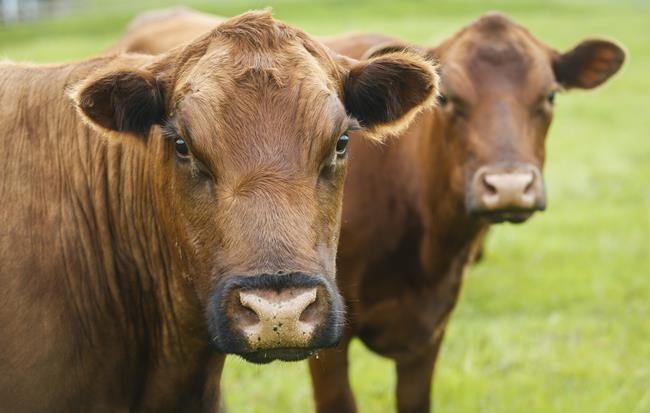CALGARY — The consolidation of beef processing plants in Alberta has kept meat prices affordable in Canada but has also made the industry vulnerable to disease outbreaks, according to a new report.
The University of Calgary's School of Public Policy study released Wednesday warned that beef production shutdowns similar to what occurred early in the pandemic could "easily happen again."
COVID-19 rattled the beef industry and raised awareness about consolidation after coronavirus outbreaks forced the temporary closure of multiple meat-packing plants last spring, pushing up retail prices and lowering cattle prices.
About 70 per cent of Canada's beef production is located in just two Alberta plants.
The study by the Simpson Centre for Agricultural and Food Innovation said creating a greater number of smaller-scale facilities scattered across the country would better insulate the food industry from a future pandemic.
Yet it also said "megascale" slaughterhouses and meat-packing plants benefit from economies of scale that keep prices lower for consumers.
"There very much is a trade off with these very large processing facilities," said Jared Carlberg, the report's author and a professor of agribusiness and agricultural economics at the University of Manitoba.
"People like to buy things that are cheap, including food," he said in an interview. "People have become used to spending a fairly low proportion of their income on food and the industrialization of food production and processing has allowed that to happen."
Yet while the consolidation of meat processing has kept retail prices affordable, it also makes the industry more vulnerable to crises, Carlberg said.
"The downside is that when we do have a disruption like this and we have to shut down a very large plant, that has a much more significant impact on food security on the consumer side and on the producer side," he said.
The study suggested that one solution could be increasing the mechanization of beef production, which would lower the risk of disease outbreaks by reducing the number of workers in facilities.
Currently, the work done at food processing facilities often entails large numbers of employees working shoulder-to-shoulder, the report said.
"Having workers in close quarters provides ideal conditions for illness to spread," the study said. "There is a clear potential for a disease to spread quickly, leading to a disruption in food output, or even a complete shutdown of a critical facility."
Indeed, the COVID-19 pandemic has provided a case study in the risks associated with modern "megascale" processing facilities.
For example, Cargill was forced to close its beef processing plant in High River, Alta., after a COVID-19 outbreak.
Similarly, while the JBS beef processing plant in Brooks, Alta., did not close, it was forced to scale production back from two daily shifts to one, the report said.
The report said safer plant design that allows for physical distancing and increased mechanization could reduce the dependency on large numbers of workers and create a better environment for those remaining.
While the changes would come with the short-term cost of jobs lost and new capital investments, the report said it would ensure a continued supply of secure, affordable food.
This report by The Canadian Press was first published Dec. 16, 2020.
The Canadian Press




